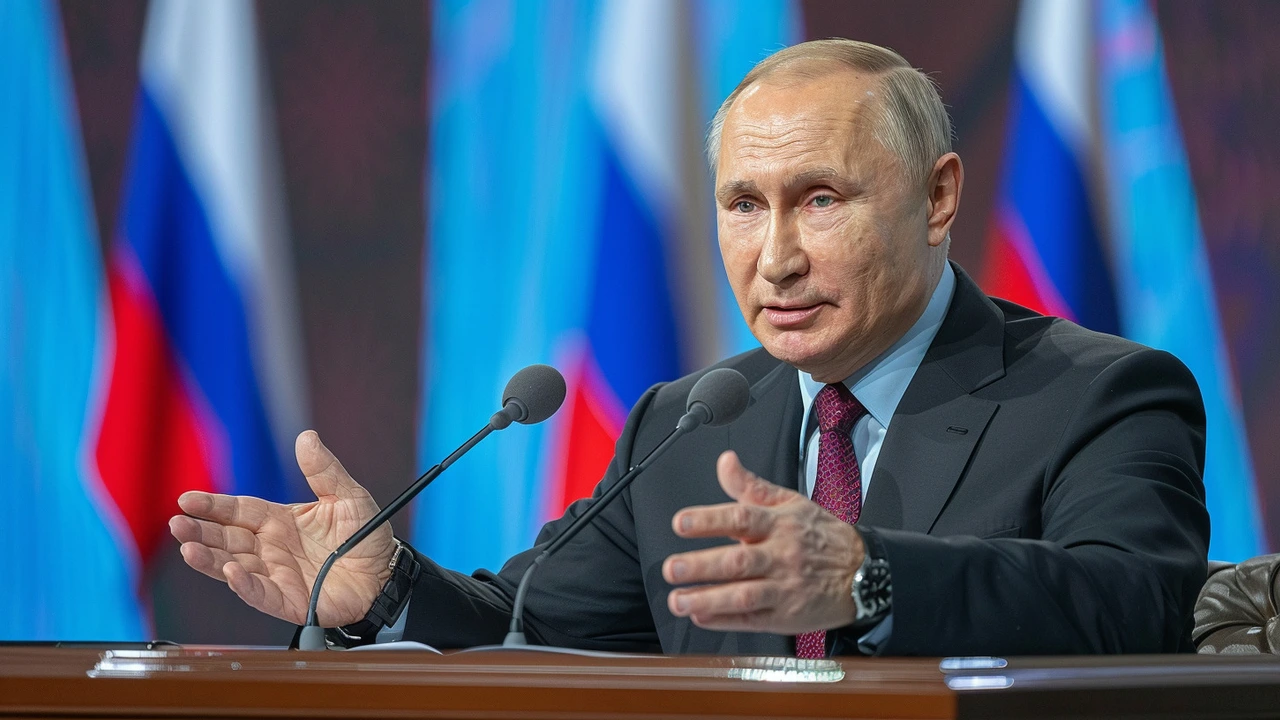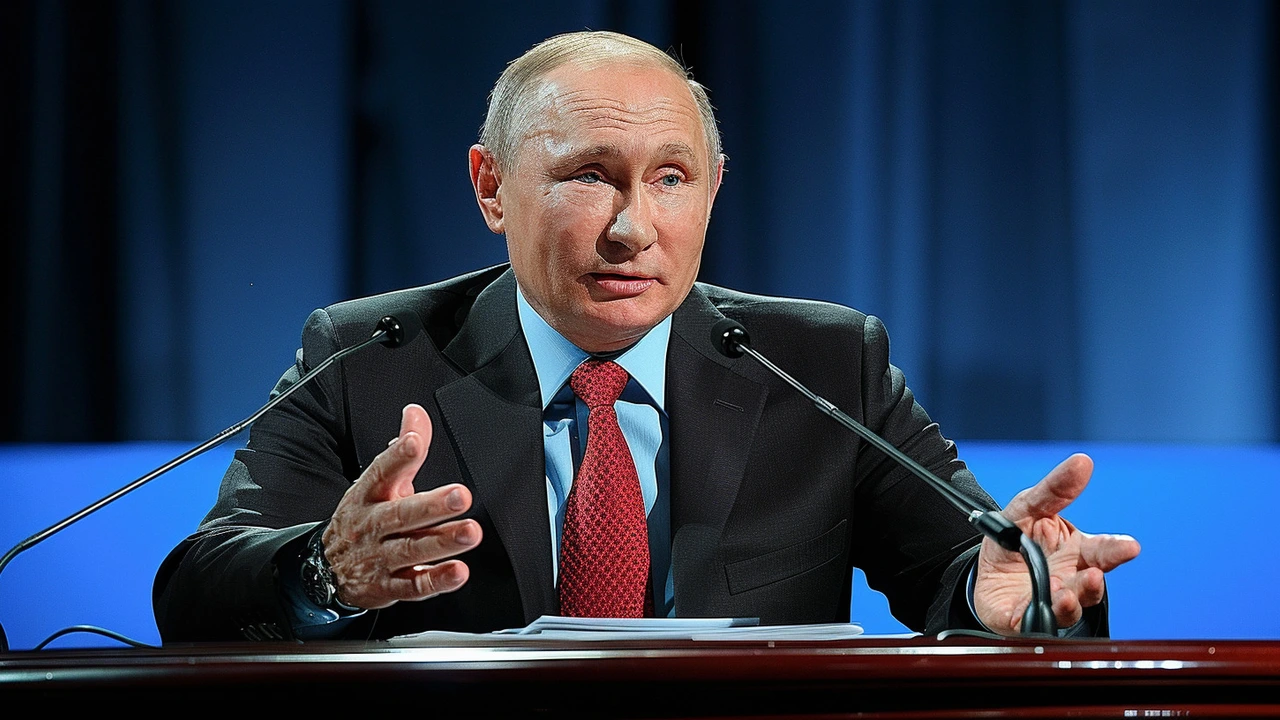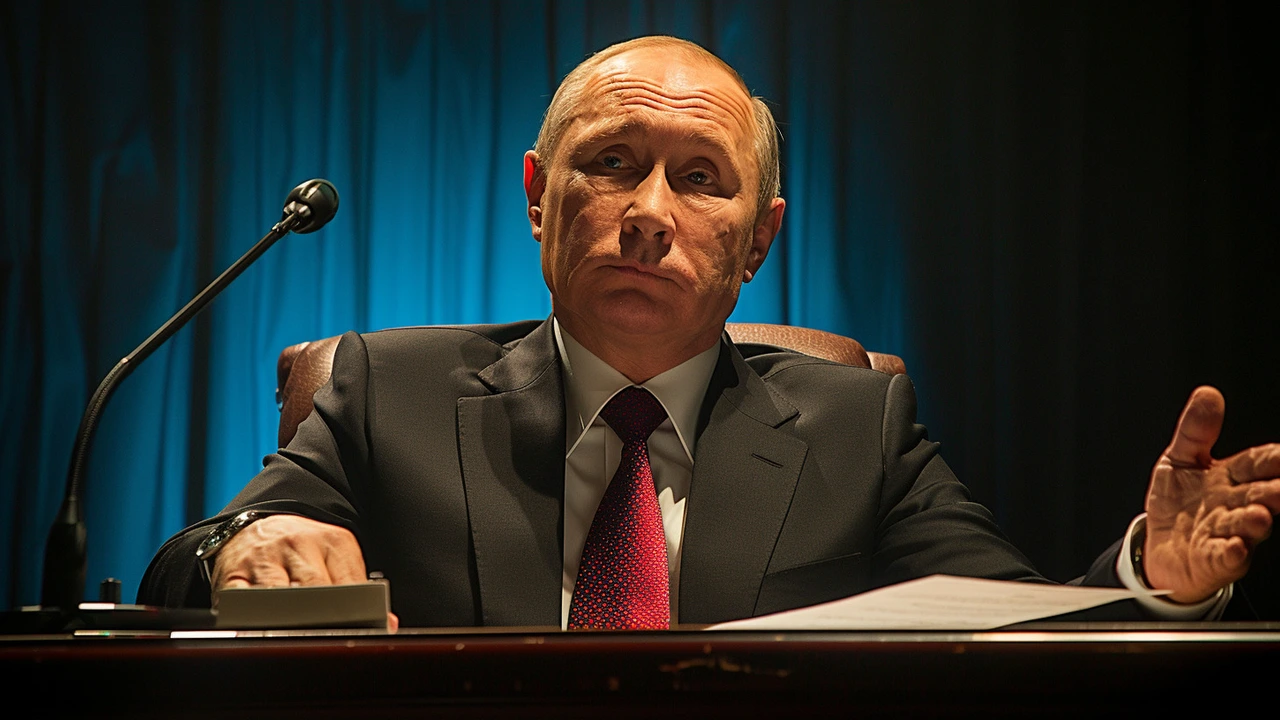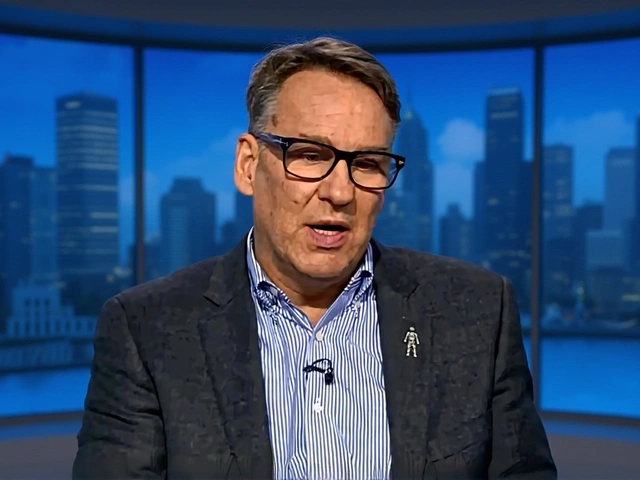Overview of Putin's Ceasefire Conditions
In a significant development, Russian President Vladimir Putin has articulated conditions for a potential ceasefire in Ukraine, which have the power to change the course of the ongoing conflict. This statement was made in a nationally televised address, drawing the world's attention. The key demands laid out by Putin include the recognition of Russia's annexation of Crimea, ensuring Ukraine's neutrality, and the demilitarization of the Donbas region. Additionally, he emphasized the necessity for Ukraine to acknowledge the independence of the Donetsk and Luhansk regions and to actively cease hostilities. Lastly, he stressed on Ukraine establishing a direct dialogue with these separatist regions.
This move marks a substantial shift in Russia's stance, showcasing a willingness to negotiate and potentially end the near-decade-long conflict. The implications of these demands are profound, as they affect Ukraine's territorial integrity and sovereignty. The international community is closely observing these conditions, given the significant death toll and widespread destruction that the ongoing conflict has caused.
International Reactions
The European Union and the United States have been vocal in their calls for an immediate ceasefire and a peaceful resolution to the conflict. They view Putin's conditions through a critical lens, wary of the implications for international law and Ukrainian sovereignty. Various European leaders have urged both parties to come to the negotiating table, emphasizing the need to avoid further bloodshed and destruction.
During a recent summit, EU officials reiterated their support for Ukraine's territorial integrity and independence while condemning actions that violate these principles. Sanctions against Russia remain a pivotal part of the EU's strategy to pressure Russia into compliance with international norms. The United States has echoed these sentiments, stressing the importance of a diplomatic solution that respects Ukraine's borders and autonomy.
European Union's Stance
The European Union has consistently supported Ukraine's sovereignty and territorial integrity. In response to Russia's demands, EU leaders have been clear that any ceasefire agreement must respect these principles. They have also called for international mechanisms to monitor and enforce any potential ceasefire, ensuring that any agreement is upheld by both sides. The EU's position highlights the broader international concern over setting a precedent where territorial changes by force are accepted.
The US Perspective
The United States has similarly emphasized the need for a ceasefire that respects Ukraine's sovereignty. American officials have pointed out that recognizing the annexation of Crimea and the independence of the Donetsk and Luhansk regions would undermine international norms and reward aggression. The US has continued its support for Ukraine through military aid and economic sanctions aimed at pressuring Russia to negotiate in good faith. The Biden administration has been clear that while diplomacy is preferred, the US will not tolerate violations of international law.

Ukraine's Position
Ukrainian President Volodymyr Zelensky has expressed a willingness to engage in negotiations but has firmly rejected Russia's demands that Ukraine recognize the annexation of Crimea and the independence of the Donetsk and Luhansk regions. To Zelensky, these demands are unacceptable as they compromise Ukraine's sovereignty and territorial integrity. His stance reflects the sentiment of many Ukrainians, who view these regions as an integral part of their country.
In his recent addresses, Zelensky has reiterated Ukraine's commitment to achieve a peaceful resolution to the conflict while safeguarding its national interests. He has called on the international community to support Ukraine in these negotiations, ensuring that any deal respects Ukraine's sovereignty. Zelensky's government has also remained steadfast in its demand for the withdrawal of Russian forces and the restoration of Ukraine's control over its eastern territories.
Humanitarian Impact of the Conflict
The conflict in Ukraine has had devastating humanitarian consequences. Thousands of lives have been lost, and millions have been displaced. The ongoing hostilities have led to widespread destruction of infrastructure, homes, and businesses, leaving many communities in dire conditions. Humanitarian organizations have reported severe shortages of food, water, and medical supplies in conflict-affected areas, exacerbating the suffering of the civilian population.
Efforts to provide humanitarian aid have been complicated by the ongoing fighting, with relief agencies facing significant challenges in accessing those in need. The international community has called for enhanced humanitarian access and support for the affected populations. There is also a pressing need for long-term support to rebuild communities and restore livelihoods once the conflict ends.

Path Forward
The path forward remains uncertain, with significant challenges in reaching a mutually acceptable ceasefire agreement. The international community's role will be crucial in facilitating negotiations and ensuring that any agreement is respected by both parties. Continued diplomatic efforts and pressure will be vital in pushing for a resolution that respects international law and addresses the humanitarian needs of the affected populations.
As the situation evolves, it is clear that the stakes are high for both Ukraine and Russia, as well as for the broader international community. Achieving a lasting peace will require compromises and difficult decisions, but the potential benefits for regional stability and global security make these efforts essential.







Angela Arribas
The phrasing “recognition of Russia's annexation” is a euphemism for illegal occupation, and that’s just unacceptable. 😠
Sienna Ficken
Oh, brilliant! Putin’s “peace plan” is basically a cheat sheet for rewinding history – annex Crimea, declare Donbas a no‑fly zone, and expect applause. The irony of calling this a ceasefire is almost poetic, if you enjoy tragic theater. Still, kudos for the audacity to rewrite borders on live TV; that takes a special kind of confidence.
Zac Death
Look, the whole situation is a mess, but we have to keep our heads above water and think about real solutions. First, any cease‑fire must guarantee the safety of civilians on both sides, because human lives matter more than geopolitical games. Second, we need an impartial monitoring body, maybe under the UN, to ensure that both parties stick to the agreement – no hidden artillery, no surprise offensives. Third, the demand to recognize annexed territories is a non‑starter; it violates international law and sets a dangerous precedent. Fourth, we should push for a phased demilitarization of contested zones, allowing local populations to decide their future through a transparent process. Fifth, humanitarian aid corridors must be opened immediately, with the assistance of NGOs, to get food, water, and medical supplies to the starving communities. Sixth, diplomatic talks should involve not only Kyiv and Moscow but also European allies, the United States, and even neutral parties like Switzerland to balance the talks. Seventh, economic incentives could be tied to compliance – sanctions relief only if clear, verifiable steps are taken. Eighth, we ought to protect minority rights, ensuring that any political settlement respects the cultural and linguistic diversity of the region. Ninth, communication channels between the frontlines need to be established to prevent accidental skirmishes. Tenth, both sides must agree to a pull‑back timetable that’s realistic and monitored by observers. Eleventh, we can’t overlook the psychological trauma – mental health support for combatants and civilians alike is crucial. Twelfth, schools and community centers should be rebuilt quickly to restore a sense of normalcy. Thirteenth, the media must stay unbiased, avoiding propaganda that fuels hatred. Fourteenth, cyber‑attacks should be condemned, as they only deepen mistrust. Finally, we all have to accept that peace is a marathon, not a sprint, and that compromise, however painful, is the only path forward.
Lizzie Fournier
Hey folks, just a reminder that behind every headline are real people trying to survive. Let’s keep the conversation respectful and focus on how we can actually help those caught in the crossfire.
JAN SAE
Team, we’ve got to stay optimistic, stay engaged, and stay proactive, because every small effort, every shared resource, every heartfelt plea, adds up, contributes, builds momentum toward a sustainable cease‑fire; remember, the power of collective action, when channeled correctly, can shift narratives, change policies, and ultimately save lives!
Steve Dunkerley
Indeed, the collaborative framework you outlined is essential; ensuring linguistic precision in diplomatic drafts will minimize ambiguity and foster clearer compliance pathways.
Jasmine Hinds
Let’s keep the hope alive and push for peace together 😊